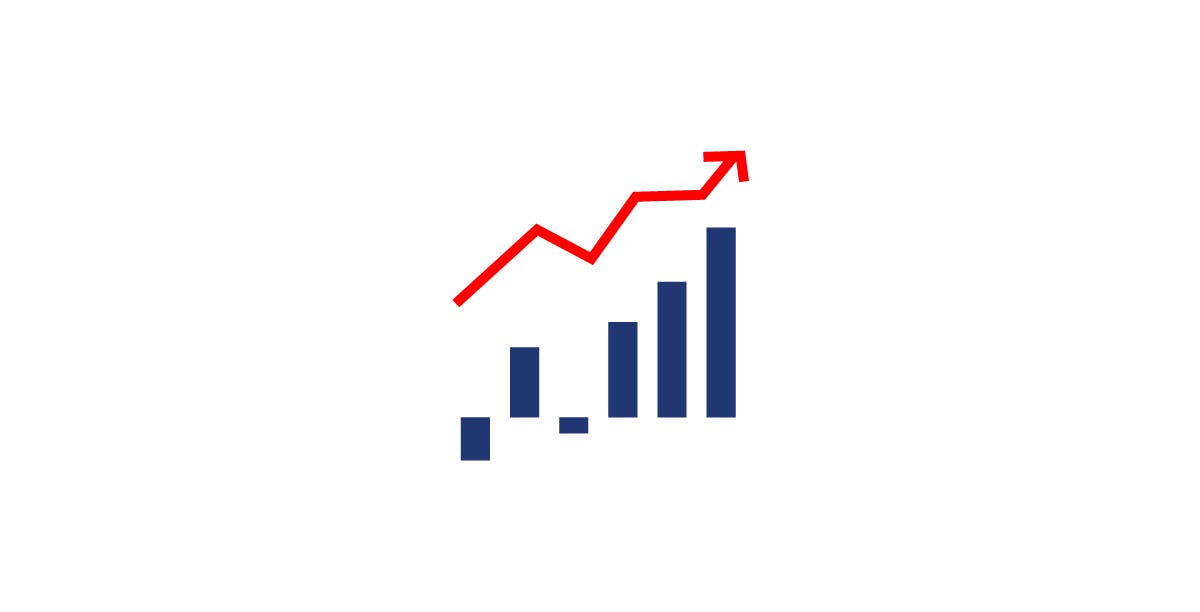A rise in mortgage rates in Switzerland – what’s going on?
Mortgage rates leapt suddenly last week. Some lenders announced a rise of more than 0.50% in under five days. The beginning of a potential rally that worried many borrowers who had not yet set their fixed rates.
As a reminder, the downward trend that we have seen in recent years is the result of a coordinated monetary easing policy led by the world’s leading central banks. Initiated in the wake of the 2008 financial crisis, this gradual drop in rates was intended to encourage people to invest their capital in the real economy instead of leaving it in their bank accounts or as cash with no possible return. Indeed, faced with the choice of making your money work by investing it or keeping in a bank account for no return, in theory, the rational choice is to invest.
Used by central banks as an instrument to restart the economy, interest rates are also a barometer for gauging the abundance of liquid assets on the market. In other words, the more money there is on the market, the better value borrowing is and, respectively, the less money there is on the market, the higher the cost of borrowing as money is scarcer. This is the famous concept of offer and demand.
The abundance of liquid assets we have known in recent years (stemming from the monetary easing policy mentioned above) has led to the farcical situation where certain financial institutions pay money to lend it.
Indeed, by analyzing recent changes to the IRS ten-year rate (the interbank base rate that reflects the liquid assets in circulation and the confidence of financial institutions in lending money to each other over ten years), we see that it reached an all-time low of -0.70% before quickly becoming positive again.
So where does this sudden rise, causing the increase in mortgage rates seen last week, come from?
The spread of Covid-19 and the large scale lockdown measures announced are the mean reasons behind the rebound in interest rates.
Although such measures are unavoidable and necessary to contain the spread of the virus, they affect the global economy, which is likely to slow down considerably.
With this observation in mind, the market (or all the economic actors) has automatically anticipated a lack of future liquid assets, causing a temporary increase in interest rates.
In response to this and to de-escalate this rise, the main central banks and countries have announced a series of unprecedented measures to support businesses dealing with cash flow problems.
Among others, they consist of the following:
- Easy access to credit, guaranteed by the State.
- The massive buying back of assets by central banks to provide governments and financial institutions with liquid assets.
- A drop in policy rates
- Support for businesses in the form of compensation (e.g. partial unemployment, lightening of social contributions and taxes, etc.)
Looking into the subject more closely, we see that these measures of an unprecedented magnitude are even more generous than those provided in response to the financial crisis of 2008.
To date, the United States Federal Reserve has announced the purchase of more than 700 billion assets and reduced its policy rate to 0% for the time being. The Senate is also discussing an additional grant for affected businesses.
The Swiss National Bank is maintaining its policy rate but increasing the franchise on which the financial institutions do not pay negative interest.
The European Central Bank has announced a massive asset purchase of 750 billion euros to ease the liquidity of financial institutions.
It reserves the right to buy back Greece’s obligations, a subject that was at the center of many disagreements between the European member states during the latest crisis.
Forecasts
Today it is difficult to say with certainty what the economic repercussions of Covid-19 will be, this will depend on how the epidemic is handled.
Nevertheless, the scale of the aid announced and the many support measures applied on a local level show a firm will to put the necessary measures in place to support the global economy.
The updating of these measures according to the latest macro-economic developments seems to indicate that the nature of the rebound is only spontaneous and will quickly fade. We believe that the risk of a long-term increase in mortgage rates remains very low.
In the light of the elements mentioned above and as rates are still close to their historic low, we ask all borrowers to set rates for long periods as long as the nature of the project allows it.
Our advisors are available to support and advise you in making strategic decisions.
The very attractive possibility of fixing rates up to 24 months in advance free of charge or obtaining fixed rates for 25 years without early repayment penalties are some of the solutions we offer our clients.
Please contact our advisors – they are ready to answer your questions.
The information contained on this website is for information purposes only. This information can in no way be construed as a recommendation, invitation, or offer to conclude a contract, nor to purchase or sell real estate.

